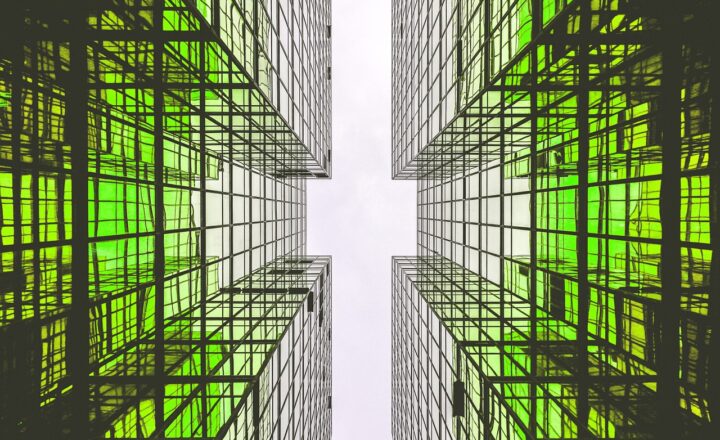The Future of Smart Cities: How AI Will Shape Urban Planning and Public Services
November 10, 2024

The concept of smart cities has gained significant traction in recent years as urban populations soar and technology continues to evolve. Smart cities utilize digital technology to enhance performance, manage resources efficiently, and improve the overall quality of life for their residents. Central to this evolution is artificial intelligence (AI), which is poised to play a transformative role in urban planning and public services. This article will explore how AI is reshaping the future of smart cities, bringing forth innovation, efficiency, and sustainability.
1. Understanding Smart Cities
A smart city is defined as an urban area that uses different types of electronic data collection sensors to supply information to manage assets, resources, and services efficiently. The primary goal of a smart city is to enhance the quality of life for its residents through smart management practices.
Key features of smart cities include:
- Intelligent Transportation: Traffic management systems that utilize data to optimize traffic flows and reduce congestion.
- Smart Infrastructure: Buildings and infrastructure designed to adapt to environmental conditions using sensors and IoT technologies.
- Enhanced Public Safety: AI-driven security systems that analyze data from surveillance cameras to detect suspicious activities.
- Sustainable Practices: Energy-efficient systems that monitor energy consumption and reduce waste.
Understanding these features sets the stage to appreciate how AI contributes to their success.
2. The Role of AI in Urban Planning
AI technologies can significantly improve urban planning through better data analysis, predictive modeling, and enhanced decision-making processes. Here are several key areas where AI can make a difference:
- Data-Driven Insights: AI can analyze vast amounts of data from various sources to identify trends and provide valuable insights that inform city planning. This data includes demographics, traffic patterns, air quality, and resource consumption.
- Predictive Analytics: By leveraging predictive modeling, AI can forecast future growth and challenges faced by cities, enabling planners to make proactive measures that mitigate risks.
- Public Engagement: AI tools can gather public feedback quickly, allowing governments to involve citizens in the planning process through surveys, social media, and smart applications.
With these capabilities, AI empowers urban planners to design cities better suited for the needs of the population.
3. AI-Enhanced Public Services
AI’s influence extends beyond urban planning into the realm of public services, optimizing how cities deliver services to their residents. Here are a few examples:
- Smart Waste Management: AI algorithms analyze waste collection data to optimize routes and schedules, reducing operational costs and minimizing environmental impact.
- Healthcare Services: AI-driven analytics can predict outbreaks and monitor public health, enabling healthcare providers to allocate resources more effectively.
- Emergency Response: AI systems can analyze data in real-time to inform first responders about incidents, improving response times and potentially saving lives.
These applications illustrate how AI can create a more efficient public service framework that benefits citizens.
4. Challenges in Implementing AI in Smart Cities
Despite the remarkable potential that AI holds for smart cities, several challenges must be navigated:
- Data Privacy and Security: As cities collect more data to enhance services, concerns over privacy and security of that information must be addressed through robust regulations.
- Interoperability: AI systems must be able to work with existing technologies and databases across different municipal departments for seamless service delivery.
- Public Trust: Gaining public trust in AI technologies is critical. Transparency in how data is collected and used can help to alleviate concerns among residents.
Addressing these challenges is essential for the successful integration of AI in smart city initiatives.
5. Real-world Examples of AI in Smart Cities
Several cities worldwide are already leveraging AI technologies to enhance service delivery and urban management:
- Barcelona, Spain: Utilizes AI for optimizing public transportation and waste management, making real-time adjustments based on usage patterns.
- Singapore: Employs AI to improve urban mobility and traffic management, integrating it into the city’s overall transport strategy.
- San Francisco, USA: Uses AI for public safety through predictive policing algorithms that analyze crime data to allocate police resources effectively.
These cities exemplify how AI can be utilized to create more livable, efficient, and sustainable urban environments.
6. The Future of Smart Cities and AI
Looking ahead, the landscape of smart cities will be shaped by AI in numerous ways:
- Sustainable Development: AI can contribute to sustainability efforts by optimizing resource use, reducing emissions, and improving infrastructure resilience.
- Citizen-Centric Solutions: As AI continues to evolve, cities will focus on developing solutions tailored to individual needs, enhancing resident engagement and satisfaction.
- Global Collaboration: AI advancements will encourage cities globally to collaborate, share best practices, and innovate collectively, improving urban living worldwide.
These projections highlight the transformative potential of AI in building smarter cities for generations to come.
Conclusion
As urban environments continue to grow and evolve, the integration of AI into smart cities presents unprecedented opportunities for enhanced urban planning and public services. By leveraging AI technologies, cities can address complex challenges, improve efficiencies, and ultimately enhance the quality of life for their residents. While challenges exist, the potential benefits far outweigh the obstacles, ushering in an era of urban living that is more connected, sustainable, and resilient. As we advance forward, embracing the synergy between AI and smart city initiatives will be crucial in crafting the cities of the future.






